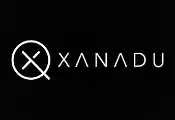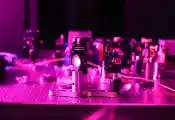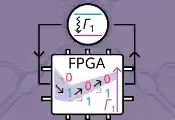Ephos Raises $8.5M Seed Round and Opens World’s First Facility for the Design and Production of Glass-Based Quantum Photonic Chips
MILAN, SAN FRANCISCO, September 23, 2024 -— Ephos, the leading producer of glass-based photonic chips, today announces a major expansion of its operations: an $8.5M funding round and the opening of a state-of-the-art research and manufacturing facility in Milan, the world’s first dedicated to producing glass-based quantum photonic circuits. The funding included non-dilutive components from the European Innovation Council (EIC) and NATO’s Defence Innovation Accelerator for the North Atlantic (DIANA); being chosen as one of just 10 companies out of a pool exceeding 1,300 applicants.
The seed round was led by Starlight Ventures, a US venture capital firm specializing in deep tech investments, with participation from Collaborative Fund, Exor Ventures, 2100 Ventures, Unruly Capital, Green Sands Equity, Silicon Roundabout Ventures, and Club degli Investitori, as well as angel investors Joe Zadeh (former Vice President at Airbnb), Diego Piacentini (former Senior Vice President at Amazon), and Simone Severini (General Manager, Quantum Technologies, Amazon Web Services).
The funding has accelerated the launch of its new research and manufacturing facility located in the Milano Innovation District (MIND), one of Europe’s most ambitious technology hubs, which will serve as a central hub for manufacturing and product innovation. The new site marks a significant milestone in Ephos’s growth and provides the capacity and resources necessary to scale its proprietary chip manufacturing technology as it expands its partnerships across the quantum technologies industry. Alongside its Milan headquarters and new manufacturing facility, the funding will also go towards growing its San Francisco team.
Setting the company apart from traditional chip manufacturers using silicon-based technologies, Ephos designs and builds glass-based photonic chips. Ephos’s technology increases the scalability and performance of advanced quantum computing, communications, and sensing devices. Built on glass substrates, Ephos’ chips offer best-in-class performance for signal loss, one of the greatest hurdles to building a quantum computer. Additionally, Ephos’ novel 3D design and manufacturing capabilities unlock unique scaling opportunities and computational modalities that ultimately enable better system performance.
With its chips being built entirely in-house and the company’s supply chain relying exclusively on US and EU suppliers, Ephos’s technology reinforces Allied security interests, offering a unique geopolitical advantage. By ensuring that critical quantum infrastructure is developed within NATO’s emerging tech ecosystem, Ephos helps safeguard strategic independence in quantum technologies, a vital area for future defense and communications. As such, in addition to the seed round, on September 10 2024, DIANA announced that Ephos was selected for Phase II of the acceleration programme, receiving a total of €450,000 non-dilutive funding over the two phases.
“Securing this funding and opening our Milan facility is a critical milestone for Ephos. Our glass-based photonic chips are set to transform not just quantum computing and AI, but the broader computational infrastructure of the future” comments Andrea Rocchetto, CEO and co-founder at Ephos. “By addressing energy inefficiencies and enhancing performance across industries, from data centers to secure communications, we’re laying the foundation for the next generation of computing technology.”
“We see tremendous potential in Ephos’s glass-based photonic chips to revolutionize the future of computing,” said Kike Miralles, Principal at Starlight Ventures. “As AI and quantum advancements challenge the limits of our current infrastructure, Ephos stands out with its ability to significantly reduce signal loss and improve energy efficiency. This innovation not only meets the growing demands for faster, more efficient platforms but also opens the door to new possibilities in quantum computing and communication technologies across multiple industries”.




































